At the Moroccan border post we met a couple from Wisconsin who were travelling overland to Mali in two Toyota Forerunners. Their vehicles were packed to the rafters with all crockery, sheets, cutlery and other such items They were en route to Bamako, the capital of Mali to open a bed and breakfast. They asked if we would travel with across Mauritania we gladly accepted. We had decided not to spend too much time in Mauritania due to the current political situation. The country has recently had a coup and although it appears to stable, there were 12 Mauritania soldiers killed in Western Mauritania the week before and tourism has suffered since the murder of a French family traveling through Mauritania. Travelling in convoy would make the journey across the barren desert safer and we would enjoy the company.
Enlarge

Adventurouspirits
There is an 8 km sandy track through no-mans land between Morocco and Mauritania. We had been told only to drive the track with a guide as the area is heavily mined. But it was a holiday in Morocco and there were no guides, so we were advised to just “stay on the tracks and go slowly.”
We had only gone about a km when we passed a car stuck in the deep sand. They obviously needed to be pulled out since their front wheels were deeply buried, so we would have to pull them out from the rear. Tom jumped out to guide me reversing, yelling to me, “Stay on the tracks” to which I replied, “I can’t see any tracks when reversing.”
Enlarge
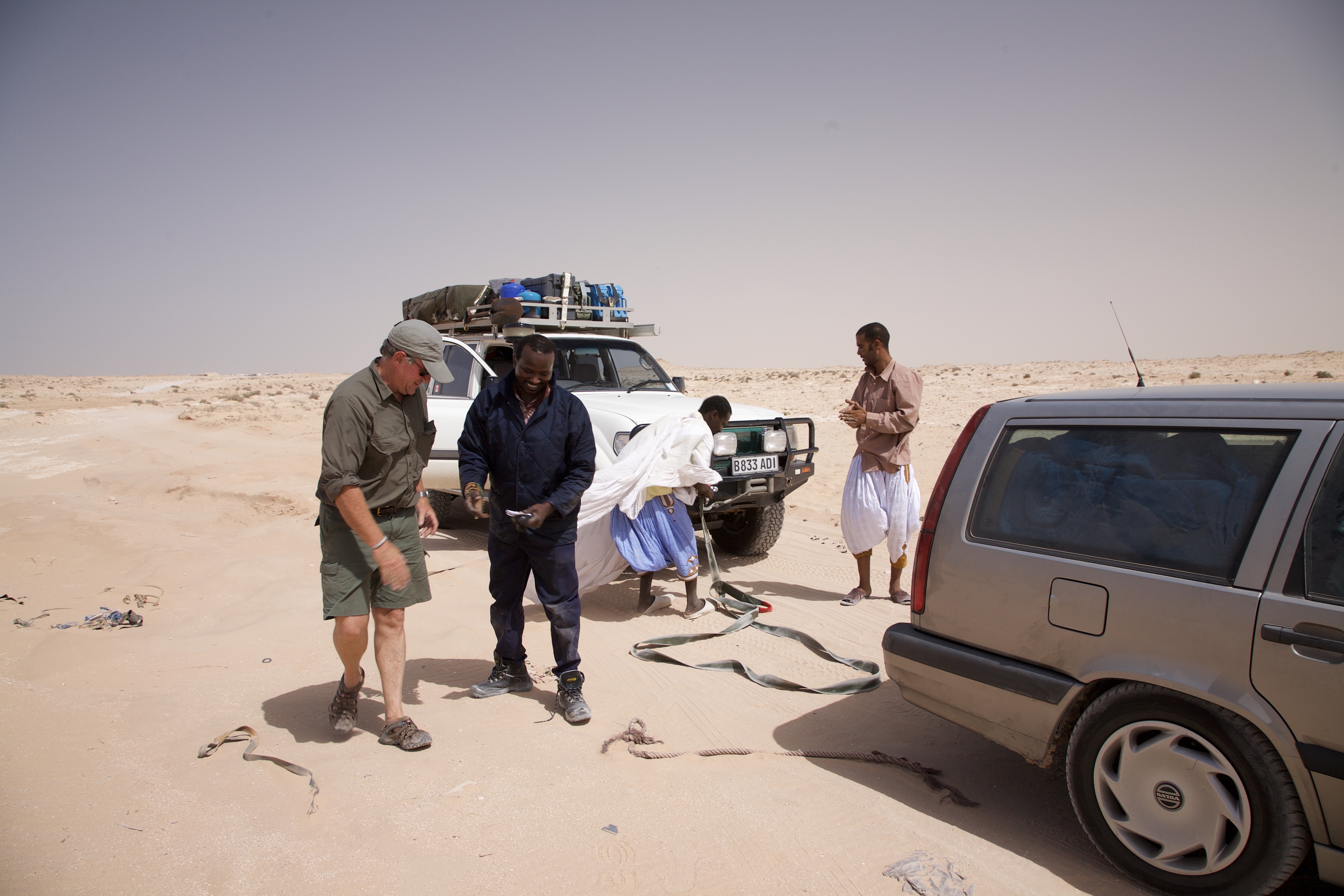
Adventurouspirits
Around us were the shells of vehicles which had been the victims of land mines. Finally we were able to pull them out and moved on.
Enlarge
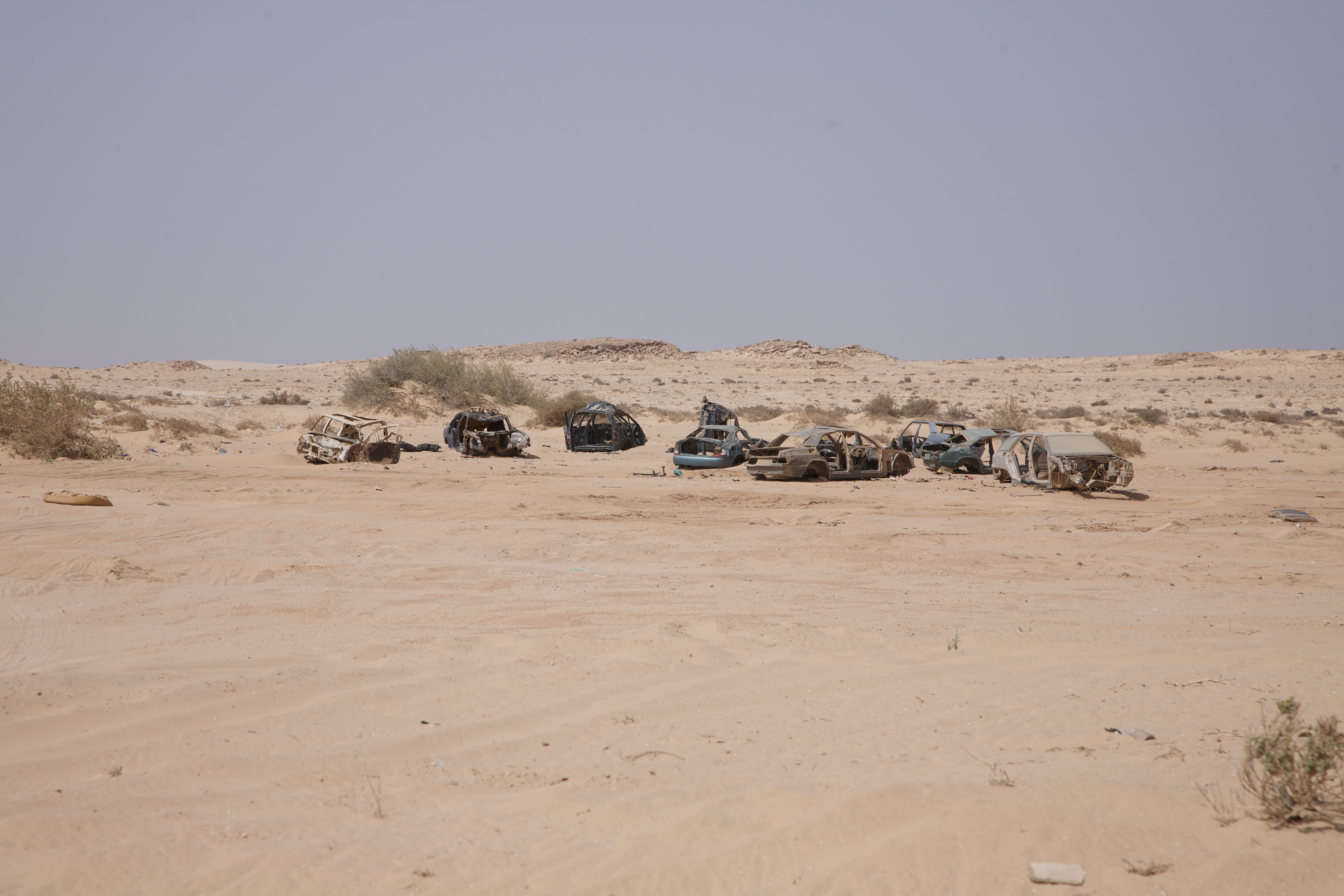
Adventurouspirits
We came to a fork and had an argument as to which tracks to follow. I wanted to follow the those with fresh tire prints, but Tom wanted to follow the track on the GPS. It is hard to win an argument with Tom and his GPS. So we took the track with no tire prints and very soon found out why this one was no longer used. It was really deep, deep sand and we struggled to keep moving and in fact when we reached the Mauritanian border side the track had been blocked off.
We were greeted by the friendly border officials who immediately asked us for their gifts. They could not believe it when we told them, we had no gifts. He then became a bit belligerent and demanded my cell phone. I told him it is a Canadian cell phone and can not make phone calls from Mauritania, it only works in Canada. He became more aggressive with me, demanding my sunglasses. I grabbed them off my face and clutching them to my chest stated in my most firm and authoritative voice said, “No gifts”. Finally they relented and our passports were stamped.
We headed for customs to have our car papers, an international document called a Carnet stamped. There was much excitement in the office, the officials waving our carnet in the air, showing it to Gael and Sonja couple. Turns out they were trying to enter Mauritania with a forged Canadian Carnet, what’s the odds of entering a little traveled too country with a forged Canadian carnet and having a genuine Canadian Carnet available for the officials to make the comparison.
Enlarge
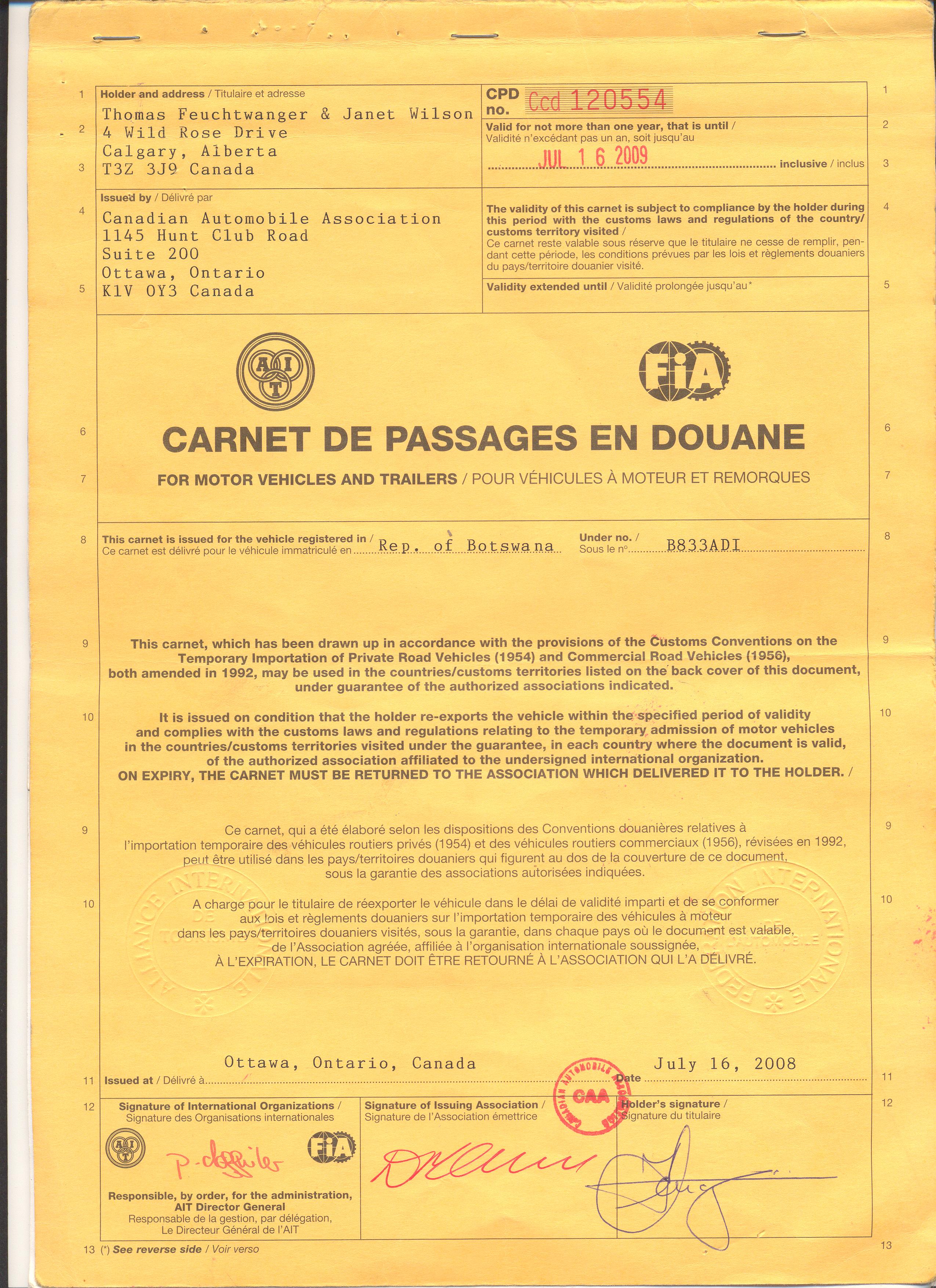
Adventurouspirits
There was lots of discussion between the officials and the other travellers all of which was in French so we could not understand. It was tense but finally they agreed to sell him a temporary import permit for his car and of course there was the giving of gifts.
The border crossing had taken us several hours so we were anxious to be on the road as it was still 460km to the capital Nouakchott also the biggest city in the Sahara. We drove across the immense expansion of desolate yet beautiful desert. It was hot and we were fortunate to experience a spectacular sandstorm. The world turned into soft colours of apricot and peach, a rosy hue engulfed us. More amazingly, it began to rain just a few drops of water, enough to sprinkle our car but in the Sahara a rare occurrence.
We camped in Nouakchott we walked down the narrow streets to the only open restaurant, a little place hidden off the main road where, we enjoyed our most tasty meal yet in Africa.
Enlarge
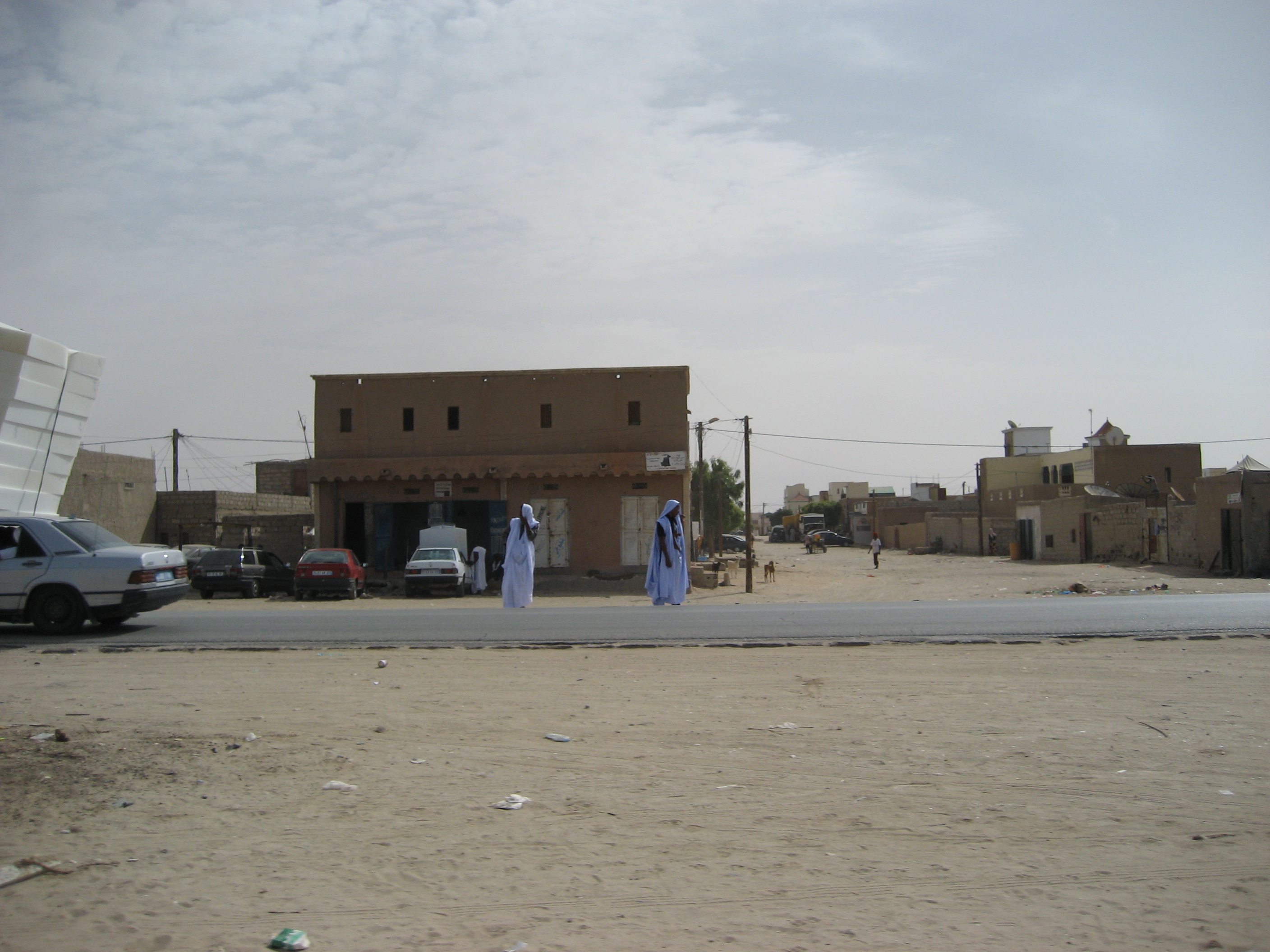
Adventurouspirits
The temperature reached 57deg Celsius (130 Fahreneit) during the day and didn’t cool off much in the evenings. It was hard to breathe. Drinking as much water as possible was critical to stay hydrated. Sleep was impossible.
Enlarge
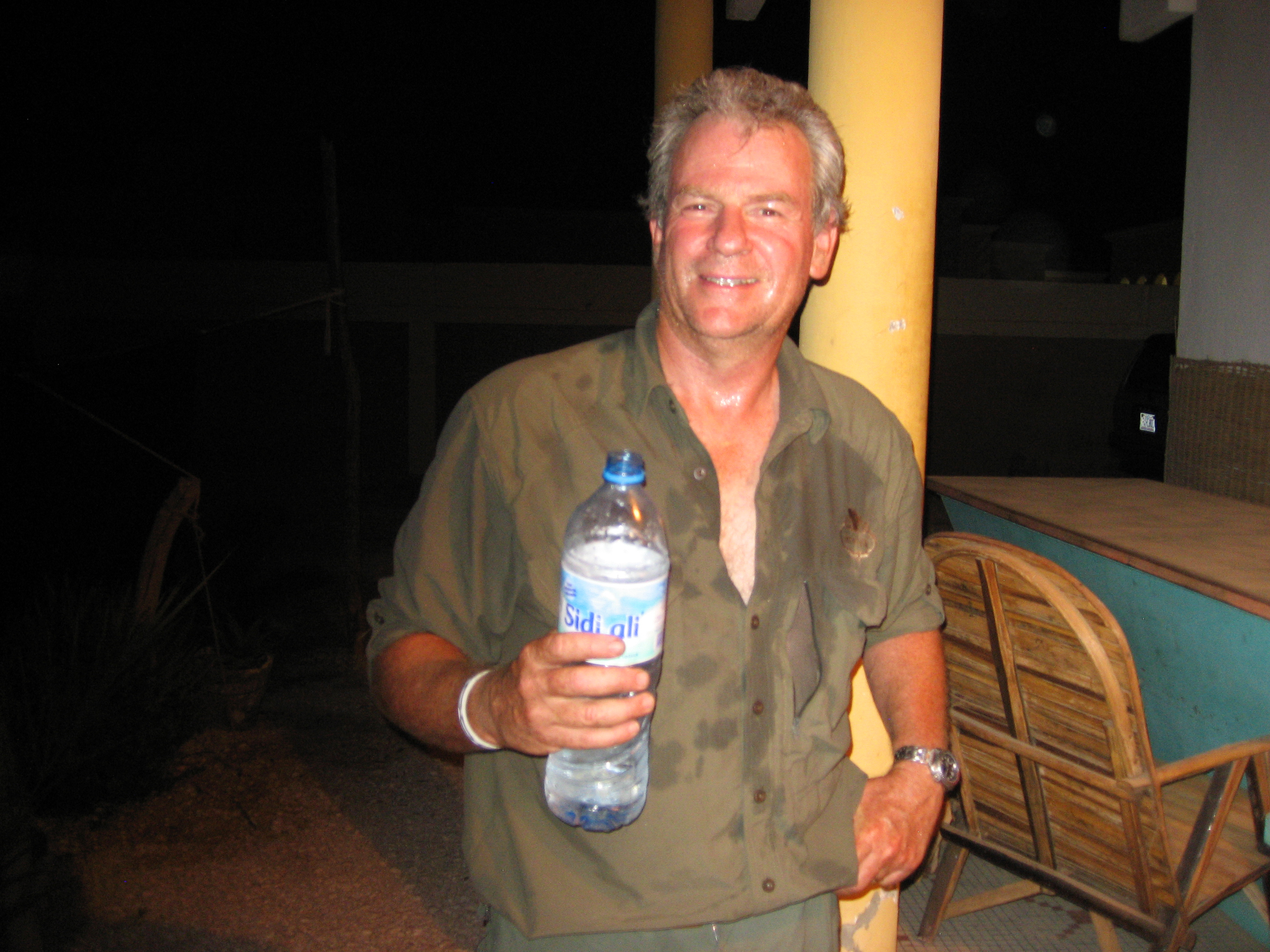
Adventurouspirits
There is not one travel guide book, not one travel website nor one overland website that does not warn one not to cross from Mauritania to Senegal at the Rosso border crossing. It is said to be run by a “Mafia” with corruption, huge costs and conmen hustling and even reports of overlanders being roughed up. It notorious and has the reputation of being one of the worst and most dangerous border crossing in Africa.
Our plan was to avoid the Rosso crossing by traveling 100km down a piste following the Senegal River to the crossing at Diama. The track is only possible by 4X4 and only in the dry season when the Senegal River is not in overflowing its banks.
We were told it was not possible to drive down to Diama as the piste was too muddy and the bridge flooded, we had a decision to make; tackle the Rosso crossing or drive the piste and hopefully make it to Diama. We wondered if we were being told the truth about the inability to drive the 100km south to Diama, perhaps it was all a rouse to get us to use the Rosso border crossing. How bad can the Rosso border crossing be, we wondered and decided to take it on, after all we had crossed 22 African country borders some of them several times.
Enlarge

The large blue metal gates were locked behind us once we entered the border post. The police approached us as did an English speaking “hustler” who was going to help us.
Enlarge

Adventurouspirits
The police took our passports, car registration, carnet, driver licenses, money for the ferry crossing (and other purposes), and disappeared into a building. We were told to wait in the car. The ferry across the Senegal River would leave at 1500hrs. which meant a several hour wait. There was no shade and our car thermometer indicated the outside temperature was 55°C. We met a Belgium overlander who told us some Holland overlanders had crossed at Rosso the day before and it had cost them 300 Euros.
Enlarge
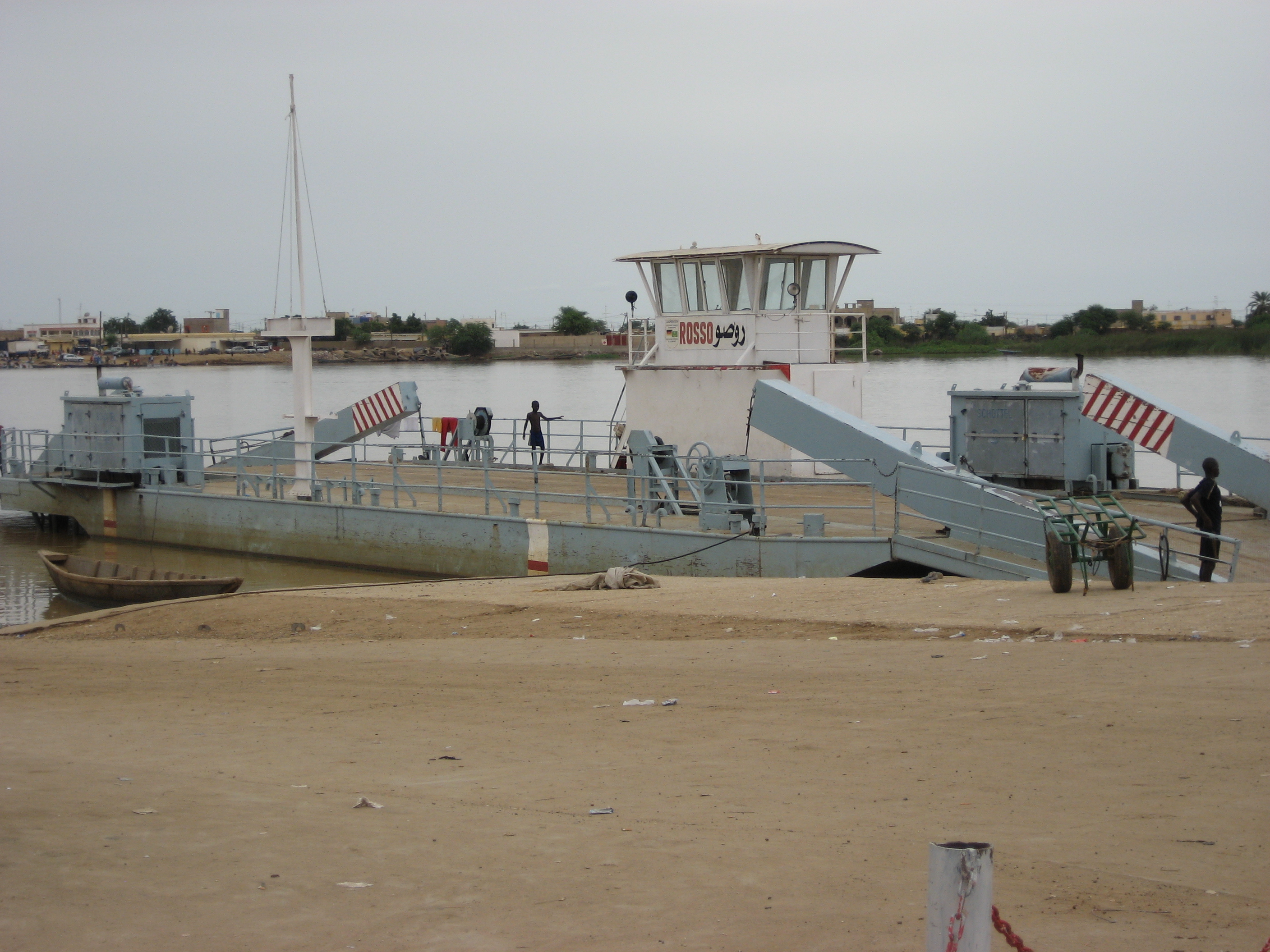
Adventurouspirits
We waited, drinking water and watching the children swim and play in the river, and large canoes ferrying people to and from Mauritania. Donkeys, goats and dogs wandered around the courtyard. Cripples and children begged. The place was oppressive with heat and flies. Hawkers walked between those waiting, selling water and toothpaste. Men knelt on prayer rugs and women comforted crying babies. I thought I was going to boil to death before I ever got onto the ferry. Finally after hours of enduring the searing heat I got back into the car and cooled off in the magnificent wonderful air conditioner of the car. I was not yet Africanized enough to endure the heat.
Enlarge
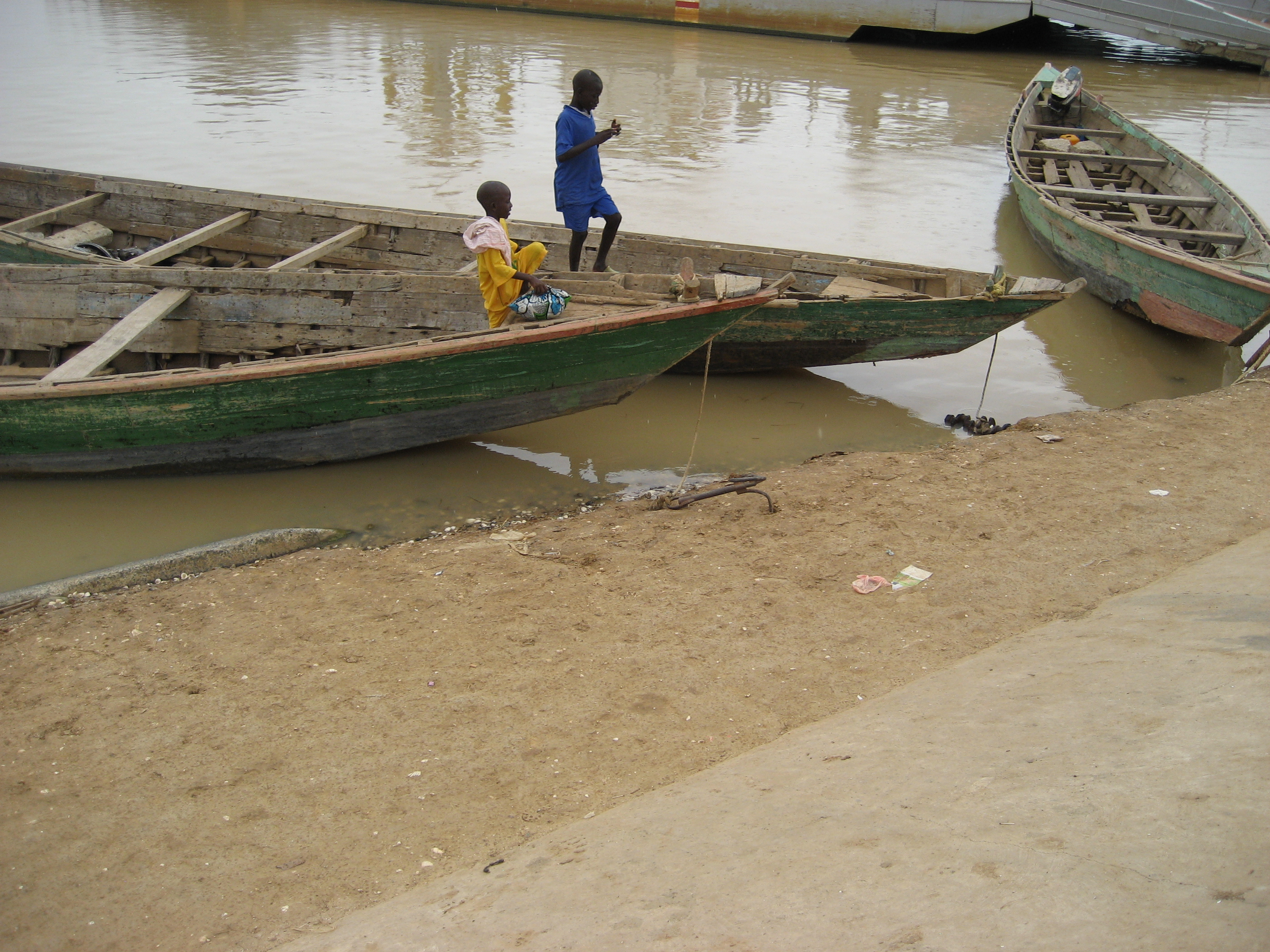
Adventurouspirits
Enlarge
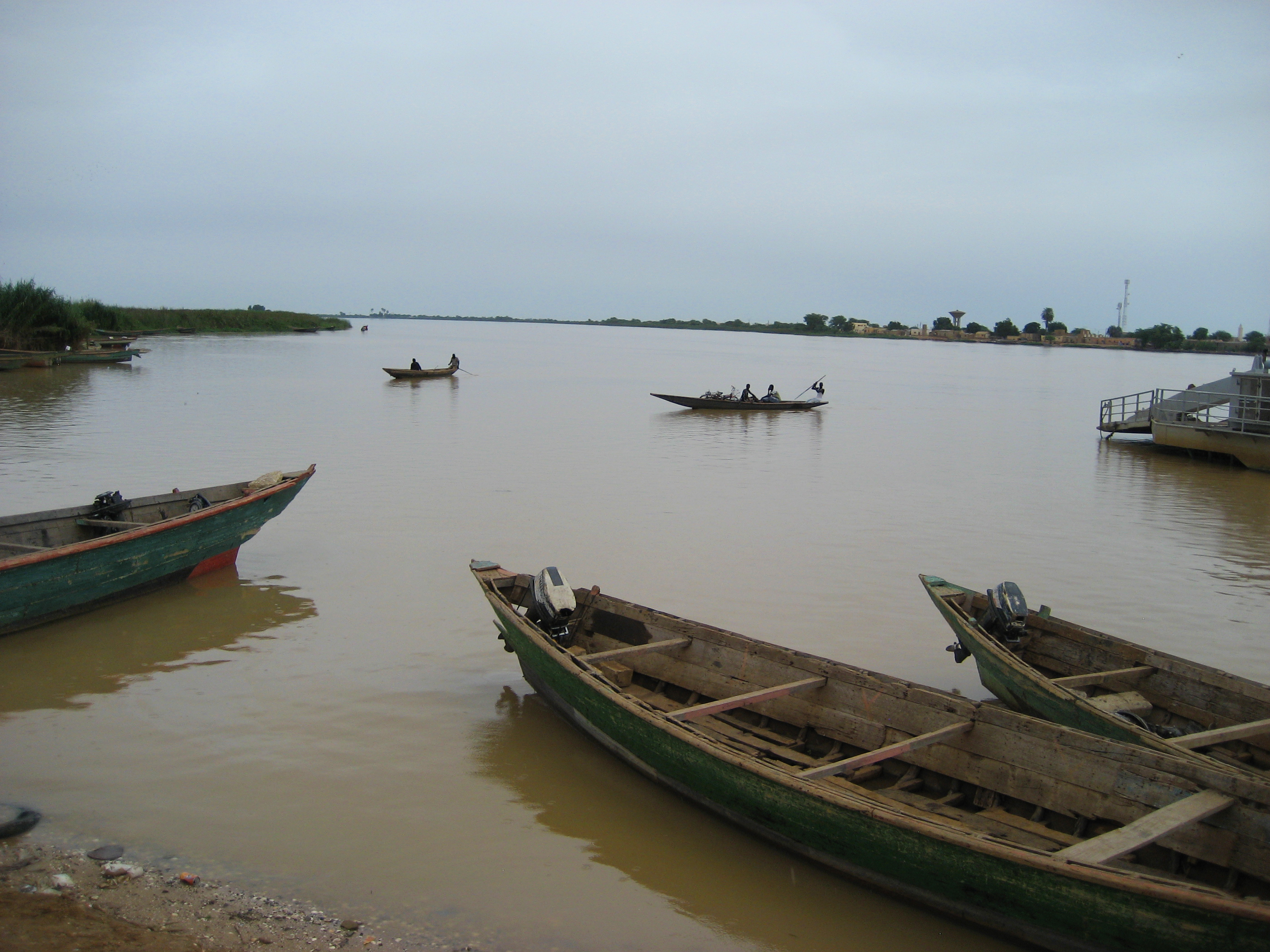
Adventurouspirits
Finally all our documents were returned and we drove onto the ferry for the ride across the Senegal River.
Enlarge
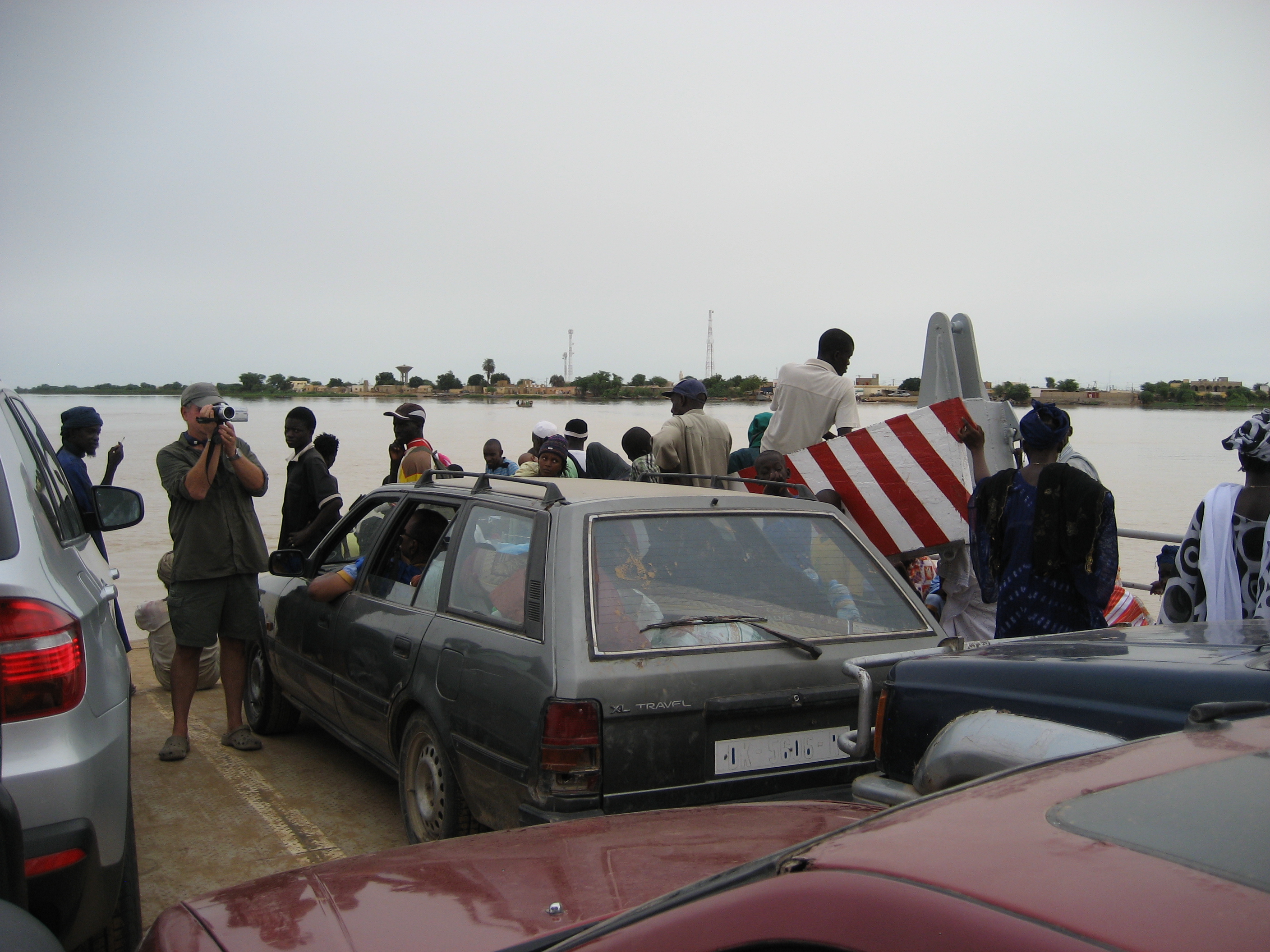
Adventurouspirits
Enlarge

Adventurouspirits
The short ferry ride to the southern bank of the river was soon over and we alighted into a bustling and chaotic Senegalese border town. Once again our papers disappeared and we were surrounded by locals wanting to assist us.
Enlarge
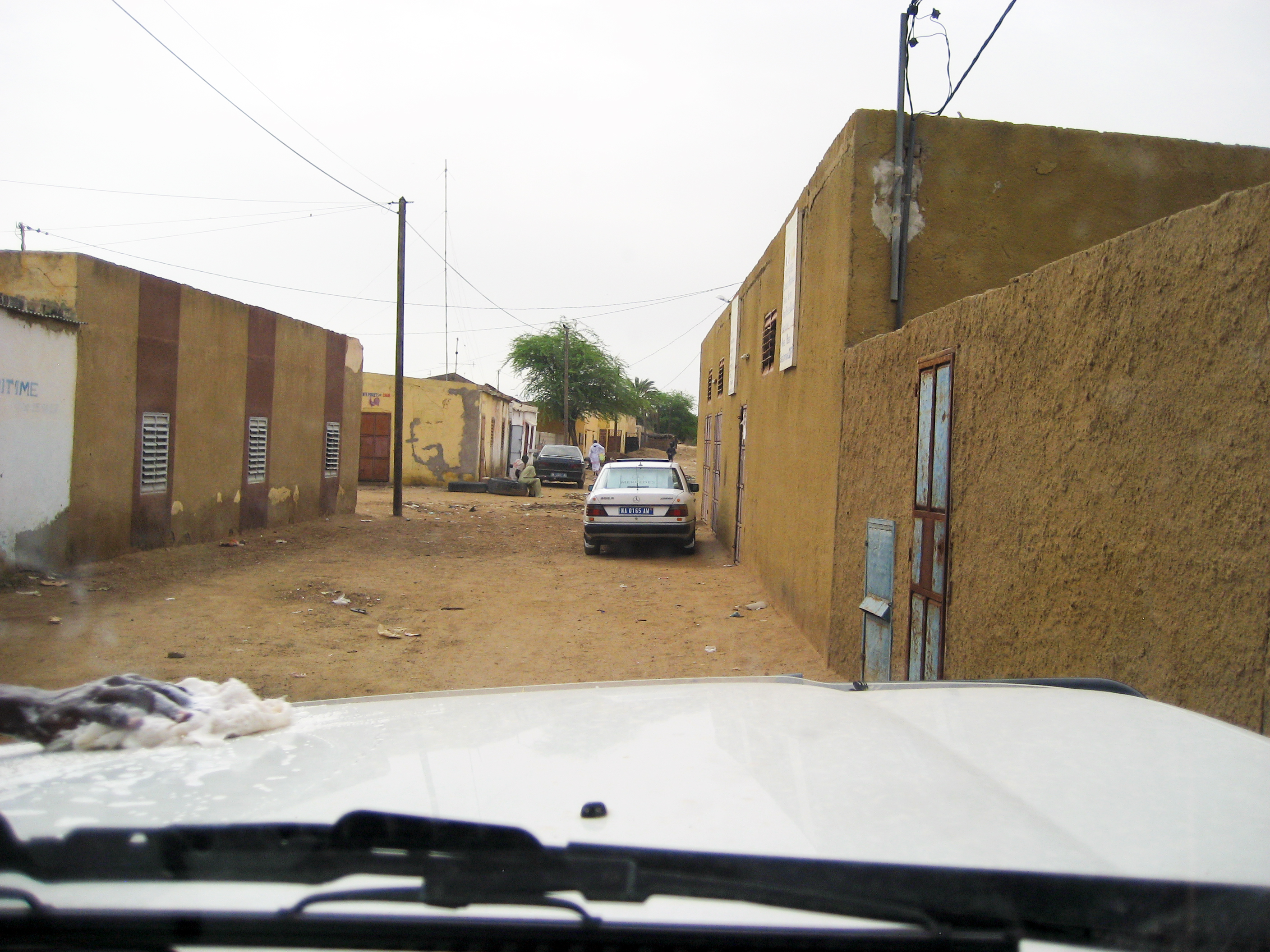
Adventurouspirits
Enlarge
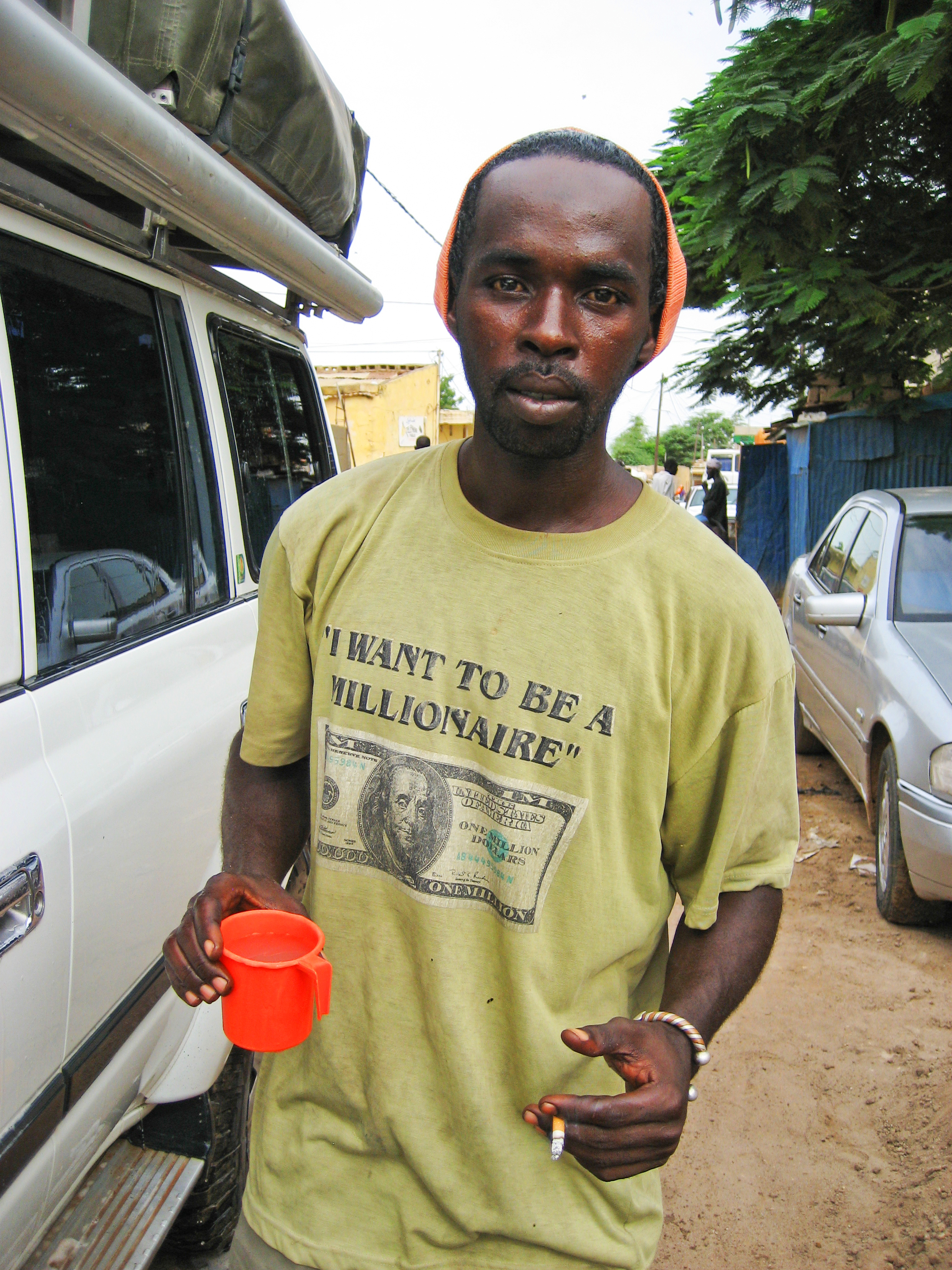
Adventurouspirits
Enlarge
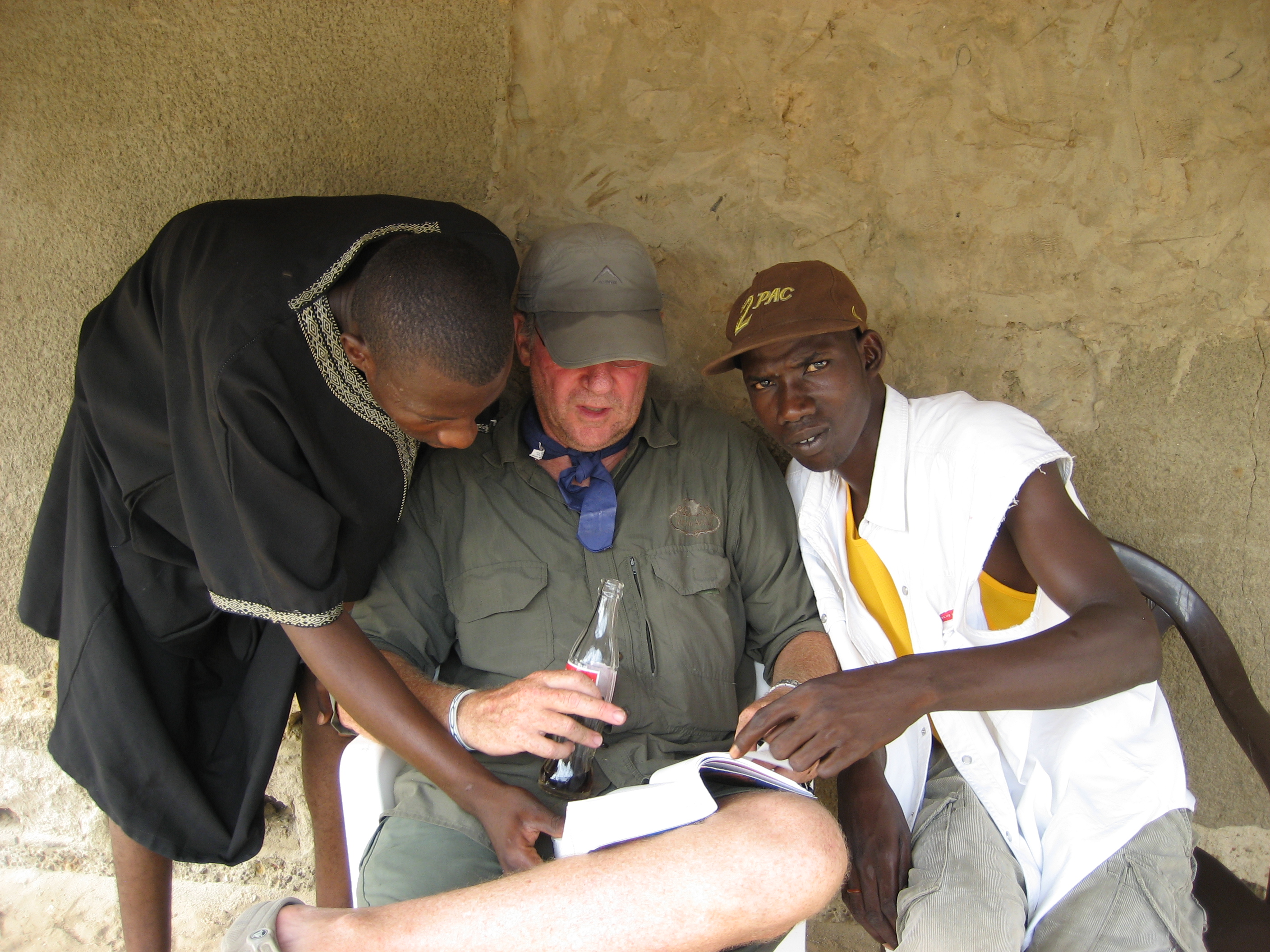
Adventurouspirits
After what seemed an eternity our stamped documents magically appeared and we headed south into the fading light to locate a campsite fro the night. We had survived the notorius Rosso border crossing relatively unscathed.
